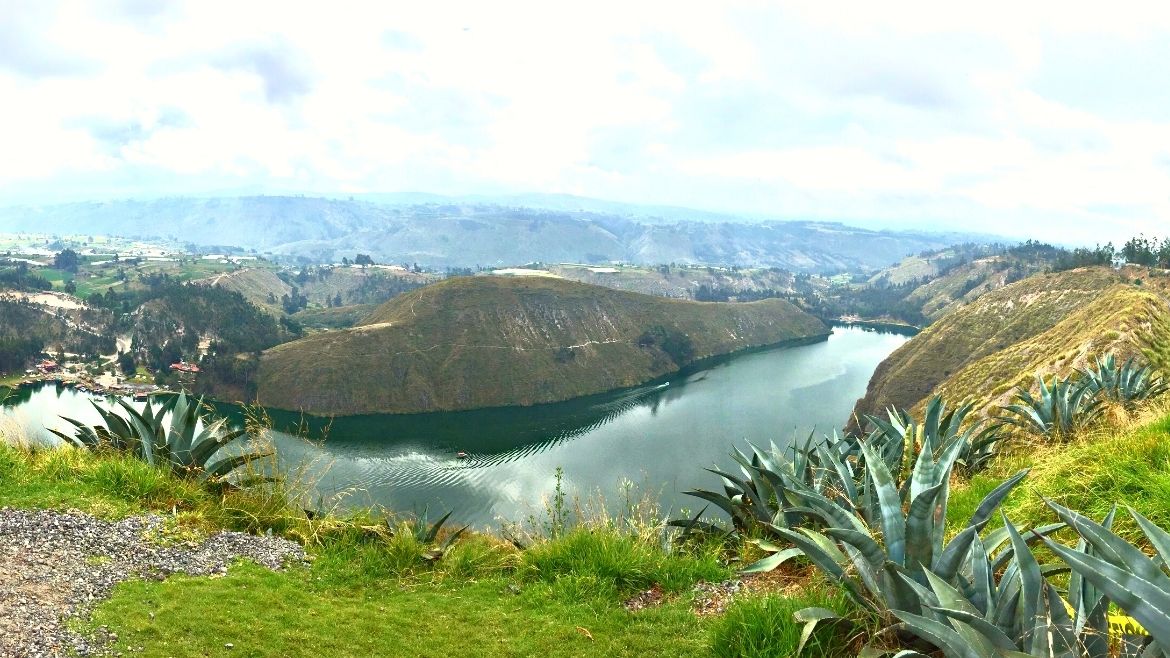With a 7 percent contraction of GDP, Latin America was the hardest-hit emerging market in 2020. However, where there is change, there is opportunity, and few countries in the region have turned their situation around so spectacularly like Ecuador.
From default and grim pandemic headlines last year, the country is now riding a wave of optimism. That stems from rising oil prices and a new presidential administration vowing to restore the rule of law, encourage trade and job creation, and attract foreign capital. Ecuador’s sovereign bonds are now among the best investments in the world: “[Returns] have topped 28% this year, more than any other country,” according to the Bloomberg Barclays index.
With a market capitalization of $10 billion, the growing Ecuadorian stock market is a way for investors to profit from the rebound.
Before diving into Ecuadorian stocks and bonds, here are four things investors should keep in mind.
1. Ecuador Leans on the Greenback
Ecuador’s dollarized economy—one of the three in Latin America—has provided stability to the financial sector and eliminated foreign-exchange risks.
Although politicians have tried to undo dollarization, it enjoys broad support from Ecuadorians. They have been able to preserve their wealth and expand the reserves of banks and credit unions as a result. Inflation, unlike in other South American nations, is a nonissue.
Investing in Ecuador could thus be attractive for individuals earning income in US dollars and whose income tax rate is higher than Ecuador’s, 25 percent. There are no taxes on the repatriation of dividends.
In addition, investors from other Latin American countries seeking refuge from their currency’s depreciation and who cannot access the US market could also benefit from the Ecuadorian stock market.
2. Be Willing to Travel
Although some brokerage firms serve foreign investors remotely and accept international checks or wire transfers, the best way to invest in Ecuador’s capital markets is by opening a local bank account, which requires a physical visit.
Traveling to Ecuador means an additional cost—at least $2,000 for a five-day stay. It is only reasonable for substantial investments.
One can open a no-fee savings account with a minimum amount of $10. Checking accounts do charge maintenance fees, and the minimum opening amount is $200. Banks usually charge $10 per international transfer.
Then, investors can choose from over 30 brokerage firms rather than just the handful that accept investments from foreign accounts.
The list of authorized brokerage firms can be found on the websites of the Quito and Guayaquil stock exchanges. Most of them can assist clients in English and Spanish.
Once their Ecuadorian bank and brokerage accounts are set up, investors need not return, although there is no lack of reasons to do so. They include the historic, nature-abundant Galápagos Islands—a two-hour flight from Guayaquil—and the fine leather and textile artisans of Otavalo and Cotacachi—a two-hour drive from Quito.
3. Instability Is Part of the Game
Although the winds of change favor Ecuador, investors need to be aware of the past. In December 2020, public debt reached 65.3 percent of GDP, and workers in the formal economy make up just 31 percent of the total workforce.
In 2019, massive protests erupted over the lifting of fuel subsidies and other austerity measures. The new president’s labor and tax reforms, although unavoidable, are not a given and could trigger a backlash from interest groups.
Investors willing to bet on Ecuadorian stocks and bonds should not only be risk-tolerant; they should also be aware of the complex social fabric that constantly creates political tensions. In this regard, Latin American expatriates or descendants aware of the above could be ideal investors.
Good news outweighs the bad, though. Investment bank Barclays improved its economic growth forecast for Ecuador in 2021, from 4 to 5.1 percent. The COVID-19 vaccination campaign has reached more than half of the population, facilitating economic recovery.
What will not change is Ecuador’s strategic location between South and Central America and its abundance in commodities the world will keep demanding.
4. ESG Is on the Cards
Ecuador is testing the waters for ESG investments, and in December 2019, the Quito Stock Exchange launched the country’s first ESG bond. The issuer was Banco Pichincha, the private bank with the most branches nationwide.
It raised $150 million to provide loans for 300,000 social and environmental projects. Foreign investors included the World Bank, the Inter-American Development Bank, and the French Development Agency.
Local investors have not shown much appetite for ESG investments. However, newer generations are poised to demand such instruments. The Amazon rainforest covers almost half of Ecuador, an ideal location for those concerned about the environment, indigeneous communities, and sustainable development.
Stay Informed with Us
After wiring the funds, investors can leave the heavy-lifting to local brokers, but staying informed about Ecuador’s economy gives one a competitive edge.
Ecuador is a developing economy with many industries bound to flourish in the next few years. New companies will surely go public, providing opportunities to those able to invest in them through local exchanges. Knowing Spanish certainly helps, but there are several investment publications and newsletters covering Ecuador in English, including Econ Americas.
Ecuadorian stock exchanges will continue to mature as the country sustains its economic growth. Reaping the opportunities is at the reach of investors willing to put in the time and effort.




